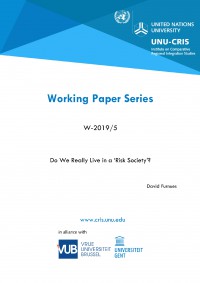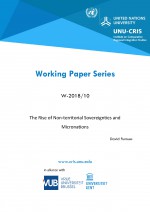Do We Really Live in a ‘Risk Society’?

This paper critiques the world risk society theory, the fears of risk and insecurity through globalisation, the possibilities of managing risk from the grass roots perspective from a non-linear approach and considers to what extent we now live in a risk society. Many threats within modern society have strong anthropogenic elements: economic crises, carcinogens in the food chain, climate change, pandemic diseases, conflict and terrorism. The main social threats facing the new modernity are the unintended side-effects as a result of human activity, creating insecurities and uncertainties. While technological progress helps overcome risk in the short term, it becomes self-perpetuating, exacerbating risk in the long term by introducing new and larger global risks, a chain of events known as ‘reflexive modernisation’. Through the ‘boomerang effect’ no one is spared as the risks backfire on those who created them. Ironically, those in the ‘scarcity society’ are hopeful that by attaining the ‘keys of techno-development’ they too might become part of the materialistic world. Systemic risks bring about global insecurities, spanning across state borders, and can become politically reflexive which could prove highly destructive, instigating catastrophe, or alternatively could trigger cross-border, global unity.

